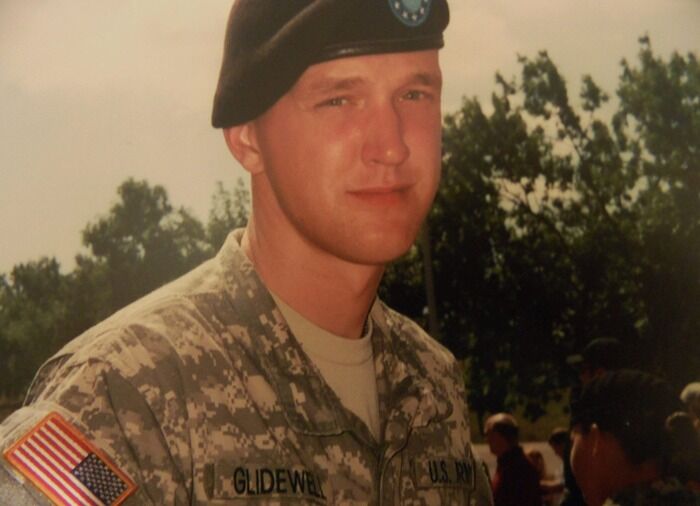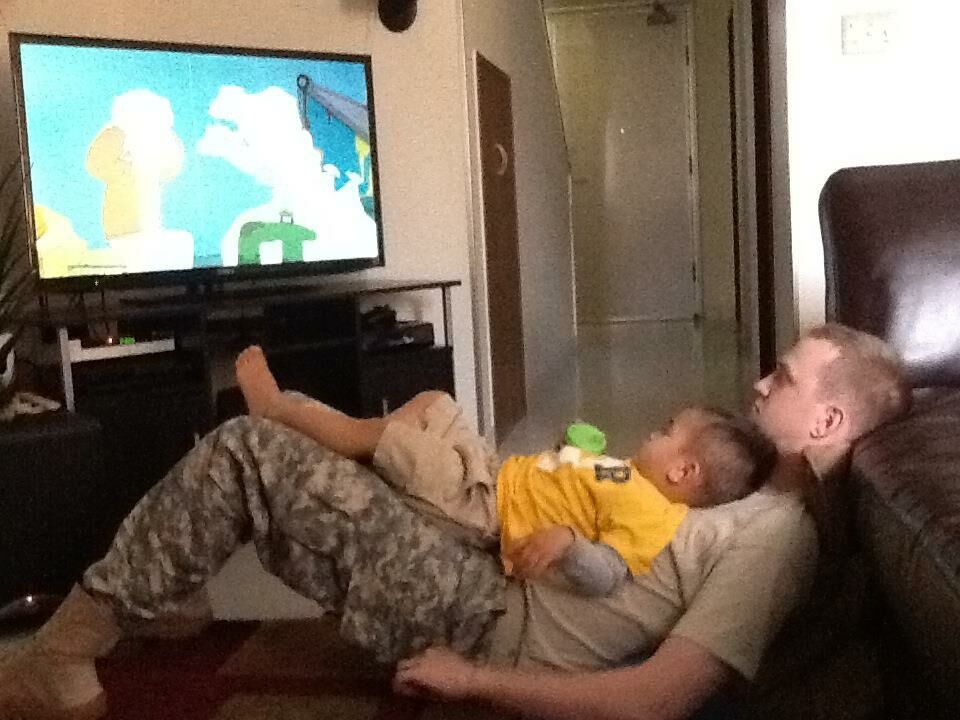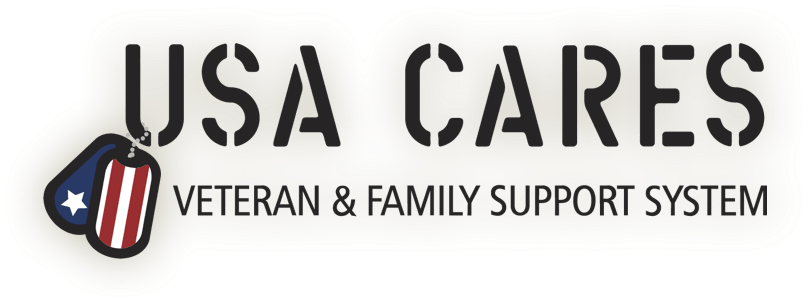Jason Glidewellin his own words
I was unexpectedly separated from service in June 2014 due to an injury sustained during a combat deployment to Kandahar, Afghanistan. My family and I had a few months notice of my pending separation, but were in the process of finalizing immigration paperwork for my two step-daughters. They were immigrating from the Philippines to the USA. Between the short warning of separation and the expensive immigration process, we were unable to make significant deposits to our savings account before separation.
We knew we had to leave base housing, and we had a major financial drain due to immigration with little time to build up financial reserves. Perhaps worst of all, I was unable to find gainful employment in the few months before my separation, in part due to mental health issues.


A week or two before separation, we had managed to save only about $1,500. We also learned my final paycheck would be delayed due to accounting requirements at separation, and we would need to move ourselves as the Army could not complete our move. While we would get paid for performing the move ourselves, it would only be a percentage of estimated moving costs, with the remainder following weeks or months later.
When my separation date arrived, I found myself with three children and a wife, no job, about $300 in my bank account, and everything I owned in a rented U-Haul. I did not have an apartment to move into. I could not afford the first month’s rent, let alone the security deposit. As neither my wife nor I had family we could stay with, our only option was to rent a hotel room. Between the hotel room, food, and the U-Haul rental, we were spending around $125 daily to survive, but only had around $300. We also had no idea when we would get paid by the Army for our move or for my final paycheck. We were together, having completed immigration, and almost homeless.
I went to anyone that would listen and could help. I needed a solution, and I needed it fast. USA Cares provided money to pay our first month’s rent and the security deposit on an apartment. While times were still hard, as I had no job yet and was still recovering mentally, homelessness was no longer imminent. USA Cares prevented a veteran, his wife who supported him during service, my 13-year-old and 7-year-old immigrant step-daughters, and my 3-year-old son from living on the street.
We eventually received my last paycheck and payment for the move. I went to college, collected BHA from the GI Bill, and worked part time. We survived. Today, I have my Bachelor’s of Science in Geography, an awesome job that pays well, and am about to start a Master’s program in geospatial programming. I work for a water utility company and feel like my work helps my fellow Americans have clean water. My formerly 13-year-old (step) daughter, now 21, is about to enlist in the US Air Force, my other (step) daughter is in ninth grade and earning all A’s in school, and my son is in all advanced placement courses in sixth grade, with all A’s. Both my younger daughter and my son are planning to serve in the US Air Force and US Navy, respectively.
USA Cares provided my family with a home when we faced homelessness. God only knows what would have happened to me and my family were it not for USA Cares. Their help prevented our needless suffering, but I like to think my family and I were good investments. I believe the help from USA Cares influenced my children towards military service in seeing the USA stands by our service members, during and after service.
In short, if it were not for USA Cares, my life would have gone through a much darker place when I lacked the mental health to manage. My children and wife would have suffered a far harder life. I never could have earned my degree, provided for my family, or empowered them to go forward doing awesome things in service to our nation. My wife and I will be forever grateful USA Cares was there when we needed them most.
